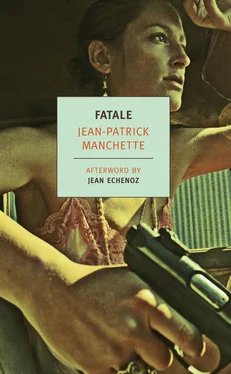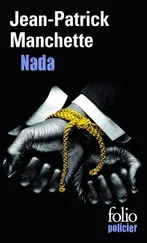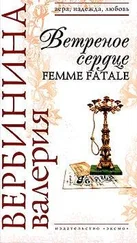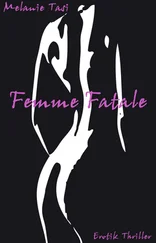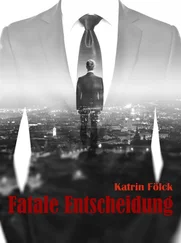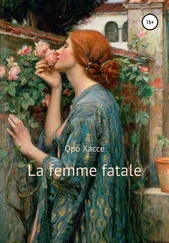Jean-Patrick Manchette - Fatale
Здесь есть возможность читать онлайн «Jean-Patrick Manchette - Fatale» весь текст электронной книги совершенно бесплатно (целиком полную версию без сокращений). В некоторых случаях можно слушать аудио, скачать через торрент в формате fb2 и присутствует краткое содержание. Год выпуска: 2011, ISBN: 2011, Издательство: New York Review Books, Жанр: Криминальный детектив, на английском языке. Описание произведения, (предисловие) а так же отзывы посетителей доступны на портале библиотеки ЛибКат.
- Название:Fatale
- Автор:
- Издательство:New York Review Books
- Жанр:
- Год:2011
- ISBN:978-1-59017-572-9
- Рейтинг книги:5 / 5. Голосов: 1
-
Избранное:Добавить в избранное
- Отзывы:
-
Ваша оценка:
- 100
- 1
- 2
- 3
- 4
- 5
Fatale: краткое содержание, описание и аннотация
Предлагаем к чтению аннотацию, описание, краткое содержание или предисловие (зависит от того, что написал сам автор книги «Fatale»). Если вы не нашли необходимую информацию о книге — напишите в комментариях, мы постараемся отыскать её.
Fatale — читать онлайн бесплатно полную книгу (весь текст) целиком
Ниже представлен текст книги, разбитый по страницам. Система сохранения места последней прочитанной страницы, позволяет с удобством читать онлайн бесплатно книгу «Fatale», без необходимости каждый раз заново искать на чём Вы остановились. Поставьте закладку, и сможете в любой момент перейти на страницу, на которой закончили чтение.
Интервал:
Закладка:
“He’s dead,” declared Sinistrat.
The mother’s cries redoubled. She had to be pacified. All the groups of guests had broken up. People were banging into one another. Between two shoulders Aimée caught a brief glimpse of the dead baby’s red face. She immediately experienced a violent stomach cramp and her teeth began to chatter.
“I want-I want to leave,” she said to Lindquist.
The realtor looked at her impatiently, not understanding and making no reply. Aimée walked around him and crossed the orchard on the diagonal. She ran into Sonia Lorque, who tried to take her arm. Aimée stamped her foot on the grass, pulled free of the blonde-haired woman, and hastened towards the end of the paddock. The cries of the mother had ceased after an injection from Sinistrat. Behind the tables with their tablecloths and unopened bottles, women in gaily colored clothes were all weeping. As she went through the open gate, Aimée was striding firmly, almost running.
She covered a kilometer before fully collecting herself. She was still trembling a little. She looked out for a roadside distance marker. The sky was clouding over. After a while she found what she was seeking: a stone marked BLÉVILLE 3.5 KM. She kept on walking, rubbing her arms. She was wearing a flower-patterned silk dress that came down to just below the knee and a white wool jacket with her shoulder bag slung across her chest. It began to rain, just a little at first but then heavily. In a few minutes the young woman was soaked and her curls all gone. An ancient black Renault 4CV came along, its wings dented and dappled with dull orange paint. The car braked, and water sprayed across the crumbling roadway. At the wheel was Baron Jules. He opened the door and signaled to Aimée to come over. She did so without thinking about it. The man got out of the 4CV and went around to open the front passenger door. He held it open as Aimée stood immobile.
“I won’t eat you,” said the baron.
Aimée got into the car. In the confined interior she was obliged to pull her knees up high, exposing them. She pulled at her dress to cover them once more. Baron Jules was back behind the wheel. The 4CV set off again.
“The baby died,” said Aimée.
“What’s that you say?”
“A baby died. Not the one being baptized. Another baby. Belonging to a peasant woman. He vomited and then died.”
“Calm yourself,” said Baron Jules. “Take deep breaths.”
He speeded up while on the highway, then slowed and turned into a narrow, graveled minor road running straight across fields of stubble. The suspension of the 4CV was very poor and its wiper blades very worn. Through the rain clusters of trees and an oddly spiral church steeple could be vaguely discerned. They reached a hamlet. Baron Jules braked and drove the 4CV through a white double gate, which was open, and down a broad drive. The whitewash on the gate was flaking badly. Beyond lay a very large garden and a kind of manor, a tiny manor burdened down with Lilliputian pepper-pot and pinnacle turrets. The garden had once been in the French manner but had clearly not been kept up for many years. With a squealing of tires on gravel, the 4CV drew up before a double staircase flanked by a pebble-dash balustrade.
“I want to go home,” said Aimée. She shook herself. “I don’t feel well. Take me back into town.”
“You’ve had a shock,” said Baron Jules. “You need to drink something. You need to dry off. You’ll catch your death of cold.”
The man got out of the car and went up the steps. Aimée got out too and followed him. They passed through a dim hall and entered a vast, very cluttered room with bow windows giving onto both the front and the rear of the residence.
“I have some calvados, and I must have the rest of a bottle of fairly decent scotch,” said the baron. “And perhaps you would like some tea?” Aimée nodded. “I’ll make tea. And let me find some towels so you can rub yourself down.”
The man left through a small white door. Aimée took a few hesitant steps in the enormous room, which must have measured at least sixty or eighty square meters. It was crowded with sideboards, tables, cupboards, seats, sofas, knickknacks, and large cardboard boxes bearing such legends as BLACK AND WHITE and HÉNAFF LUNCHEON MEAT-JACK TAR’S TREAT. The pale paint on the walls and the plaster on the ceiling were all scaling off. The ceiling bore dirty brown circles above the shaded lamps. The furniture was thick with dust, and old breadcrumbs lay on the filth-ingrained Persian carpets. The baron returned carrying a tray laden with glasses and bottles. Slung over one shoulder was a hand towel with the logo of the SNCF, the French National Railways. He set the tray down and tendered the towel to Aimée. As the young woman rubbed her head he poured spirits from a crystal decanter into glasses bearing Mobil and Martini logos.
“When I break this decanter of mine,” he said, “I’ll replace it with one with advertising on it.” He held out one of the glasses to Aimée, who reached for it with one hand as she continued toweling her hair with the other. “I am very interested in promotional items and free gifts,” continued the baron. “Also in trash. I have no income, you see, and a man with no income is bound to take a great interest in free gifts and trash.” He took a sip of brandy and clicked his tongue appreciatively. “Given the present state of the world, don’t you know, with the increase of constant capital as compared with variable capital, a whole stratum of the poor is bound to be unemployed and live off free gifts and trash, and occasionally off various government subsidies. Do you know what I am saying?”
“I am not sure,” said Aimée.
“Nor am I,” said the baron. “But excuse me, please, I hear the kettle whistling.”
He went off again through the small white door, leaving it open behind him.
“I’m glad I picked you up on the road,” he shouted from the kitchen. “I wanted to see you again. I think you are mysterious. Are you mysterious?”
Aimée made no reply. The baron reappeared with another tray holding tea and cups.
“Alas, I have neither milk nor sugar at present,” he said. “I must apologize for the condition in which I first appeared before you, I mean to say with my prick in my hand. It is I who must seem mysterious to you.”
“Not really,” said Aimée. “No big deal.”
They drank their tea and glared at each other in silence, standing very close, with their noses in their cups.
“I am not mysterious,” declared the baron at last. “I am an astronomer. Come, let me show you.”
He went ahead of Aimée through the small white door and led her up a narrow staircase. They came to the second floor. Aimée, who had not finished her drink, an excellent calvados, was holding her glass. As they went down a passageway, the baron pointed into a bare room with a camp bed and covers, a naked bulb dangling from the ceiling, and cases of whiskey and cartons of cigarettes piled up against the walls.
“My bedroom,” he said. “I’m not going to invite you in there to copulate; we are not well enough acquainted for that.” And he continued on down the passageway. Here too there were boxes of spirits and cartons of cigarettes. “Would you like a few cartons of English cigarettes?” he asked. “I have various dealings with the Bléville seamen.”
“No, thank you,” replied Aimée.
“And I win stuff off them at cards,” added the baron as he started up a very narrow spiral staircase at the end of the corridor. “I’m a very good player. And, frankly, they let me cheat. Because I make them laugh.”
The spiral staircase led up an angle tower. Through leaded windows of colored glass Aimée looked down over the rear of the garden, where rabbits were running in and out of rain-soaked hutches. Then they came into a circular room directly beneath the tower’s roof.
Читать дальшеИнтервал:
Закладка:
Похожие книги на «Fatale»
Представляем Вашему вниманию похожие книги на «Fatale» списком для выбора. Мы отобрали схожую по названию и смыслу литературу в надежде предоставить читателям больше вариантов отыскать новые, интересные, ещё непрочитанные произведения.
Обсуждение, отзывы о книге «Fatale» и просто собственные мнения читателей. Оставьте ваши комментарии, напишите, что Вы думаете о произведении, его смысле или главных героях. Укажите что конкретно понравилось, а что нет, и почему Вы так считаете.
